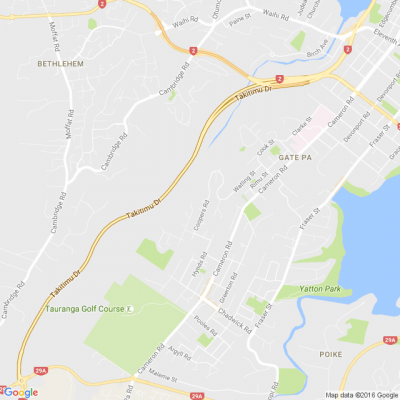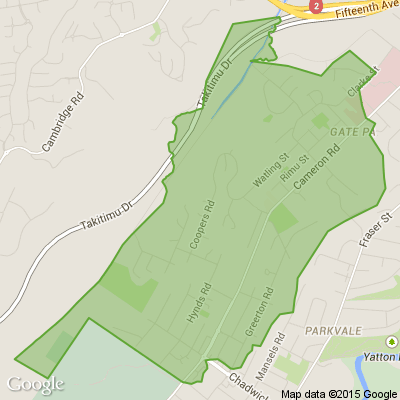
Know what’s happening
Access the private noticeboard for verified neighbours near you. Keep informed about any suspicious activity, send urgent updates to your neighbours when required and discuss emergency planning.
Get to know your neighbours
Browse the directory and start getting to know your neighbours. Don’t want to post to the whole neighbourhood? Send a private message.
Buy, sell and give away
Want to declutter your garage? Buy some used household items? Give away some garden stuff? Become a verified neighbour to browse and post items for sale. Trading is simple when everyone lives nearby.


Ryman’s Walk in Wednesdays
Ryman villages across the country are open every Wednesday in November.

Thank you for using Neighbourly
You may receive an email confirmation for any offer you selected. The associated companies will contact you directly to activate your requests.
Spark have recently announced a price increase of $3 - $5 a month for new and existing broadband customers and other providers seem likely to follow suit.
Information collated by our research team has found that tens of thousands of Kiwis are still missing out on hundreds of dollars of savings … View moreSpark have recently announced a price increase of $3 - $5 a month for new and existing broadband customers and other providers seem likely to follow suit.
Information collated by our research team has found that tens of thousands of Kiwis are still missing out on hundreds of dollars of savings each year on their broadband bill, because they are failing to shop around for cheaper broadband plans.
We estimate that over 500,000 households would be able to pay less for their broadband each month but many consumers are unaware of the fact that they could be making these savings and people often don’t know where to start when looking for a change in broadband plan or provider.
This is where NZ Compare can help. Our websites are simple to use and if you need more help, our friendly, Auckland based, customer support centre can advise on the most suitable broadband plan for your needs and help talk you through the switch. With unlimited fibre broadband plans available for less than $60 a month why would you pay more?
Find out more at NZ Compare or call the team on 0508 226672
CORRECTION: This post has been amended to clarify that the price of fibre and copper broadband internet services will increase, and that the increase is between $3 and $5 a month, not only $5 a month on fibre broadband plans as previously posted. (Amended at 10.31am, June 23, 2022)

390 replies (Members only)
The Team from Resene ColorShop Tauranga
Transform an old wooden easel with Resene paint into a statement piece for a glam office or homework desk!
Find out how to create your own.

Are you ready?
𝐅𝐋𝐀𝐒𝐇 𝐒𝐀𝐋𝐄 is on NOW! 72 hours only!
𝐒𝐚𝐯𝐢𝐧𝐠𝐬 𝐨𝐟 𝐮𝐩 𝐭𝐨 𝟔𝟓% 𝐨𝐟𝐟 on NZ-made Beds with 𝐅𝐑𝐄𝐄 𝐋𝐎𝐂𝐀𝐋 𝐃𝐄𝐋𝐈𝐕𝐄𝐑𝐘 and 24 Months Interest-Free with Q Card
… View moreAre you ready?
𝐅𝐋𝐀𝐒𝐇 𝐒𝐀𝐋𝐄 is on NOW! 72 hours only!
𝐒𝐚𝐯𝐢𝐧𝐠𝐬 𝐨𝐟 𝐮𝐩 𝐭𝐨 𝟔𝟓% 𝐨𝐟𝐟 on NZ-made Beds with 𝐅𝐑𝐄𝐄 𝐋𝐎𝐂𝐀𝐋 𝐃𝐄𝐋𝐈𝐕𝐄𝐑𝐘 and 24 Months Interest-Free with Q Card
Shop online or at your nearest Beds4U store!
✅60 Night's Comfort Guarantee
✅100% NZ Owned and Operated Business
✅19 Bed retail stores across North Island
*Apply Code (FLASH22) to your cart for 𝐅𝐑𝐄𝐄 𝐒𝐇𝐈𝐏𝐏𝐈𝐍𝐆 on online orders above $799 and only valid for shipping rates under $99. While stocks last.
*24 Months Interest-Free with Q Card: Read T's & C's here.
Find out more

Lyn from Otumoetai
Purchased from Briscoes about a year ago. Has only been used a couple of times.
Currently selling at Briscoes for $95 after 20% discount
Price: $20
Lyn from Otumoetai
Excellent condition. Manufactured in 2009 but has had very little use, only kept in spare room. Not a smart tv.
Price: $10
Owner from Curtain Clean BOP Ltd
Commonly known as ‘soft’ fibres, bast fibres are the fine, flexible fibres obtained from the stems of dicotyledonous plants.
Bast fibres have been used to manufacture ropes, sacks, sails, and other industrial fabrics for hundreds of years. Commonly known as ‘soft’ fibres, bast fibres are… View moreCommonly known as ‘soft’ fibres, bast fibres are the fine, flexible fibres obtained from the stems of dicotyledonous plants.
Bast fibres have been used to manufacture ropes, sacks, sails, and other industrial fabrics for hundreds of years. Commonly known as ‘soft’ fibres, bast fibres are the fine, flexible fibres obtained from the stems of dicotyledonous plants. A sustainable choice, bast fibres support regenerative agricultural practices that can help the soil sequester carbon and as a natural resource, are entirely biodegradable. In this article we will investigate four of the most utilised bast fibres: flax, hemp, ramie, and jute.
Between the epidermis (the outermost layer of cells) and the core of the plant’s stems are soft, woody fibre bundles or strands which can be over one metre long. The strands are composed of individual filaments made up of cellulose and hemicellulose cells bonded together by pectin or lignin, a cohesive gum which strengthens the stem of the plant.
During harvest the stems are cut close to the ground and the fibres are separated either through a natural decomposition process called retting (engaging moisture and bacteria to rot away the gummy cellular tissues) or by decortication (peeling the stems manually or mechanically). After retting, the fibres can be mechanically extracted through a process known as scutching.
In contrast to bast fibres, leaf fibres are obtained from the leaves of monocotyledonous plants with parallel-veined leaves, such as grasses, lilies, orchids, and palms. The long, stiff fibres of plants including abaca, cantala, Mauritius hemp, and sisal are generally used to create cordage or ropes, however, due to labour-intensive harvesting processes they are used less frequently than synthetic options.
Flax (Linen): Famously grown across northern France, Belgium, the Netherlands, and Ireland, flax is the most popular and strongest of the bast fibres. Wild flax fibres found in the Upper Palaeolithic layers of a Georgian cave indicate that humans have been crafting cords and weaving flax baskets for over 30,000 years.
Keep reading: www.curtainclean.co.nz...
Robert Anderson from Curtain Clean HQ
Commonly known as ‘soft’ fibres, bast fibres are the fine, flexible fibres obtained from the stems of dicotyledonous plants.
Bast fibres have been used to manufacture ropes, sacks, sails, and other industrial fabrics for hundreds of years. Commonly known as ‘soft’ fibres, bast fibres are… View moreCommonly known as ‘soft’ fibres, bast fibres are the fine, flexible fibres obtained from the stems of dicotyledonous plants.
Bast fibres have been used to manufacture ropes, sacks, sails, and other industrial fabrics for hundreds of years. Commonly known as ‘soft’ fibres, bast fibres are the fine, flexible fibres obtained from the stems of dicotyledonous plants. A sustainable choice, bast fibres support regenerative agricultural practices that can help the soil sequester carbon and as a natural resource, are entirely biodegradable. In this article we will investigate four of the most utilised bast fibres: flax, hemp, ramie, and jute.
Between the epidermis (the outermost layer of cells) and the core of the plant’s stems are soft, woody fibre bundles or strands which can be over one metre long. The strands are composed of individual filaments made up of cellulose and hemicellulose cells bonded together by pectin or lignin, a cohesive gum which strengthens the stem of the plant.
During harvest the stems are cut close to the ground and the fibres are separated either through a natural decomposition process called retting (engaging moisture and bacteria to rot away the gummy cellular tissues) or by decortication (peeling the stems manually or mechanically). After retting, the fibres can be mechanically extracted through a process known as scutching.
In contrast to bast fibres, leaf fibres are obtained from the leaves of monocotyledonous plants with parallel-veined leaves, such as grasses, lilies, orchids, and palms. The long, stiff fibres of plants including abaca, cantala, Mauritius hemp, and sisal are generally used to create cordage or ropes, however, due to labour-intensive harvesting processes they are used less frequently than synthetic options.
Flax (Linen): Famously grown across northern France, Belgium, the Netherlands, and Ireland, flax is the most popular and strongest of the bast fibres. Wild flax fibres found in the Upper Palaeolithic layers of a Georgian cave indicate that humans have been crafting cords and weaving flax baskets for over 30,000 years.
Keep reading: www.curtainclean.co.nz...
Step into a NASA engineer’s shoes to design and create a robot, inspired from insects’ unique characteristics, with the capability of surviving on Mars. The competition is for rangatahi aged 10 to 16 years across Aotearoa.
The finalists will get the chance to go to Tauranga STEM Festival … View moreStep into a NASA engineer’s shoes to design and create a robot, inspired from insects’ unique characteristics, with the capability of surviving on Mars. The competition is for rangatahi aged 10 to 16 years across Aotearoa.
The finalists will get the chance to go to Tauranga STEM Festival and present their InsectBot to a panel of judges. The competition winner will receive amazing “money can’t buy experiences” including a visit to Rocket Lab facilities as a VIP and other prizes will include a series of space and engineering themed experiences thanks to our generous partners.
Find out more

Walter from Welcome Bay
Tauranga Underwater hockey would like to introduce you to our new PEE-WEE Puck programme designed to get students aged between 9 and 13 yrs of age involved in the sport.
This sport is great for students that love water activities and want to be involved in a team sport but haven’t found … View moreTauranga Underwater hockey would like to introduce you to our new PEE-WEE Puck programme designed to get students aged between 9 and 13 yrs of age involved in the sport.
This sport is great for students that love water activities and want to be involved in a team sport but haven’t found their niche yet. It is also fantastic for people recovering from an injury and are unable to participate in high impact activities and as we all know activity helps with mental well being.
If popular enough Tauranga underwater hockey will develop a PEE-WEE league with teams from individual schools or composite teams to compete in term 4 2022.
The club can assist with coaching for schools interested in participating.
Please contact the club for more information. Let's get these kids off their devices and out experiencing new things.
Club night is Sunday 4pm to 5pm during school term at Baywave pool, please check our facebook page for any cancellations and if students have their own gear please encourage them to bring it along
Tauranga Underwater Hockey Committee
Keep up to date, follow us on TUWH Facebook
www.sporty.co.nz...
emailtuwh@gmail.com

We have a challenge for everyone!!!
You have 5 seconds to find the matching emoji and comment your answers..
Ready, Set, Go!!!

Almost everyone in the world has heard of the game of chess, but what not everyone knows is that there is an entire day dedicated to the celebration of this wonderful pastime!
A game of strategy and wits, chess has long been considered to be the thinking man’s game. From its early days in … View moreAlmost everyone in the world has heard of the game of chess, but what not everyone knows is that there is an entire day dedicated to the celebration of this wonderful pastime!
A game of strategy and wits, chess has long been considered to be the thinking man’s game. From its early days in India in the 6th century, to everywhere in the world today, chess is a wonderful game to play anytime, anywhere, and with almost anyone.
Has your child played the game of chess? Why not try it today!

For delicious grass-raised beef New Zealand is the perfect combo.
An ideal climate, lush pastures and innovative farming produces enough beef for Macca’s in New Zealand and around the world. Our patties are 100% quality beef, and all that’s added is a dash of salt and pepper when cooked.
… View moreFor delicious grass-raised beef New Zealand is the perfect combo.
An ideal climate, lush pastures and innovative farming produces enough beef for Macca’s in New Zealand and around the world. Our patties are 100% quality beef, and all that’s added is a dash of salt and pepper when cooked.
We partner with many Kiwi farmers who produce our beef, including those at the world-class Whangara Farms.
Find out more

Tony from Pyes Pa
Buying quality Used Records and Music Memorabilia. Best prices paid. Also free advice on valuations etc. www.recordroundabout.com....

Lisa from Otumoetai
Does anyone have a copy of this they would like to sell please?
Matt from
Rising costs and tightening household budgets are front of mind as we head into the winter months and as the temperatures start to cool off, the increased use of appliances to heat our homes can contribute to the biting energy prices.
To avoid the bill shock that can sometimes arrive in time … View moreRising costs and tightening household budgets are front of mind as we head into the winter months and as the temperatures start to cool off, the increased use of appliances to heat our homes can contribute to the biting energy prices.
To avoid the bill shock that can sometimes arrive in time with your next energy invoice, there are a few things that you can do to reduce energy consumption and the costs associated with it.
Fix draughty area
Look at areas where draughts may be prevalent in your home, typically under doors and windows. Around 40% of heat from the home escapes from windows and if you are a homeowner you may consider investing in double glazing which can bump up the energy efficiency of your home and have the added benefit of reducing sound.
If you are renting, many hardware stores have solutions for draught excluders around windows and doors.
Thicker curtains can keep colder air at bay and thicker rugs over hardwood floors can provide a cost-effective insulation approach.
Check hot water
Hot water usage can contribute a substantial amount to energy costs. Tips like adjusting the temperature as well as washing with cold water or ensuring that you are only washing full loads are key to reducing those energy outputs.
Turn off appliances
Appliances in standby mode, not in use, can still use energy. Even your phone charger that is switched on at the wall and not in use is still generating power.
If you are not using the appliance or going away, ensure that you are switching appliances off at the wall to reduce the energy consumption being used by those appliances.
Price check your c current plan
There is a myriad of energy suppliers in the market now. Check your current electricity and gas bills to make sure that you are getting the best deal and negotiate to find the best solutions for you.
Swap your light bulbs
Where possible, make the switch with your light bulbs to those that are the most energy-efficient for the types of light fittings that you have in your home. More energy-efficient bulbs use as much as 75% less electricity and have the added benefit of lasting longer, which means replacing less often.
Making a few small changes in our living spaces and habits can assist with reducing those energy bills and adds to one less shock the next time you receive your electricity or gas bill.
I'm available for advice on anything real estate. Contact me during the week, after work or at the weekend.

 Loading…
Loading…
Are you sure? Deleting this message permanently removes it from the Neighbourly website.
 Loading…
Loading…

 $770,000
$770,000



 Marketed by Dan Towers
Marketed by Dan Towers

 For Sale by Deadline Private Treaty
For Sale by Deadline Private Treaty


 Marketed by Debi Bennett
Marketed by Debi Bennett

 Auction
Auction



 Marketed by Dan Towers
Marketed by Dan Towers

 Auction
Auction



 Marketed by Dave Frith
Marketed by Dave Frith

 By Negotiation
By Negotiation



 Marketed by Brooke Woolsey
Marketed by Brooke Woolsey

 Tender
Tender



 Marketed by Michelle Stephenson
Marketed by Michelle Stephenson

 $359,000
$359,000



 Marketed by Michelle Stephenson
Marketed by Michelle Stephenson

 By Negotiation
By Negotiation



 Marketed by Lisa Crowe
Marketed by Lisa Crowe
© Neighbourly 2024
